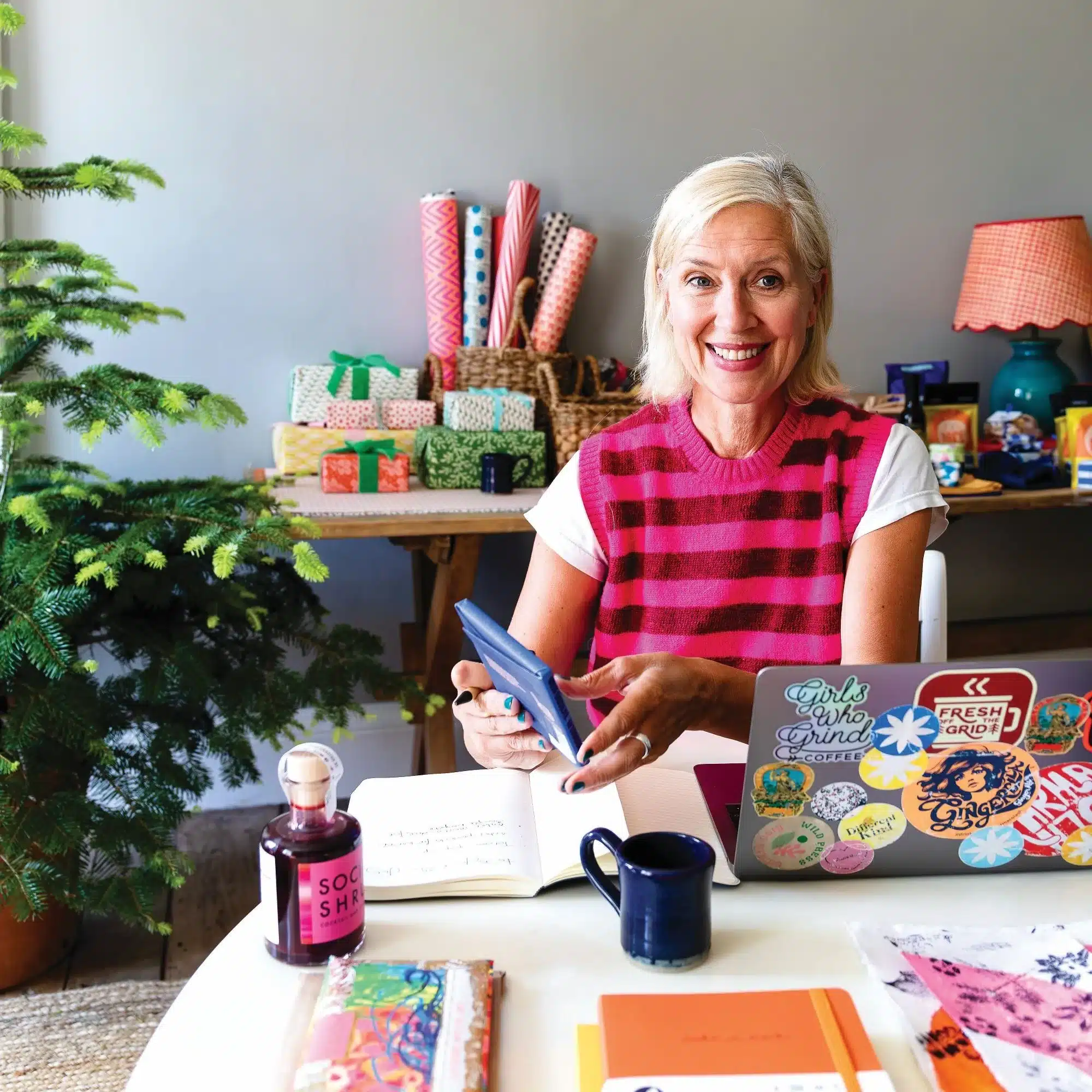Liz Warner, Oxfordshire-based CEO & co-founder of Different Kind, on Big Brother, Comic Relief and launching a business that gives back
What was your early break in television?
My break into TV came after I decided I wanted to leave national magazines where I was a features writer. It took many attempts, but this wonderful woman Jo Sandilands, who sadly died this year, had faith in me. She too had made the move from magazines and gave me a break to work on a chat show at the BBC. I loved it.
I really liked the teamwork after the lone furrow of a feature writer. I liked the daily deadlines and the pressure of a live show. I learnt so much from the senior journalists and my producer Jill Lourie, who became a friend for life. After a live show we would go out to Kew Gardens or for breakfast. Sometimes we would head to the BBC bar, which was like a working men’s club. We worked hard and played hard too.
I then spent my 20s working on various productions as a freelancer including a year travelling the world with David Bailey making a documentary on the history of models, until I was approached to join Channel4.
What was the story behind Betty?
I was a Commissioning Editor at Channel 4 and had been there for four years developing and buying shows such as Grand Designs; Nigella; Location Location, Location; and Gordon Ramsay’s Boiling Point. It was a purple patch for factual television.
But then came along this programme from the Netherlands called Big Brother. It was a massive creative risk for us as a broadcaster. I oversaw the first one which was one of the biggest challenges of my career and the second one, but I thought if I don’t leave now I will be defined by this. I like innovating and starting things. I had a very clear idea of the TV production company I wanted to run with a very strong culture which included all.
Not many companies were run by women then, but I went for it with a small bank loan (thank you NatWest) and a lot of ideas.
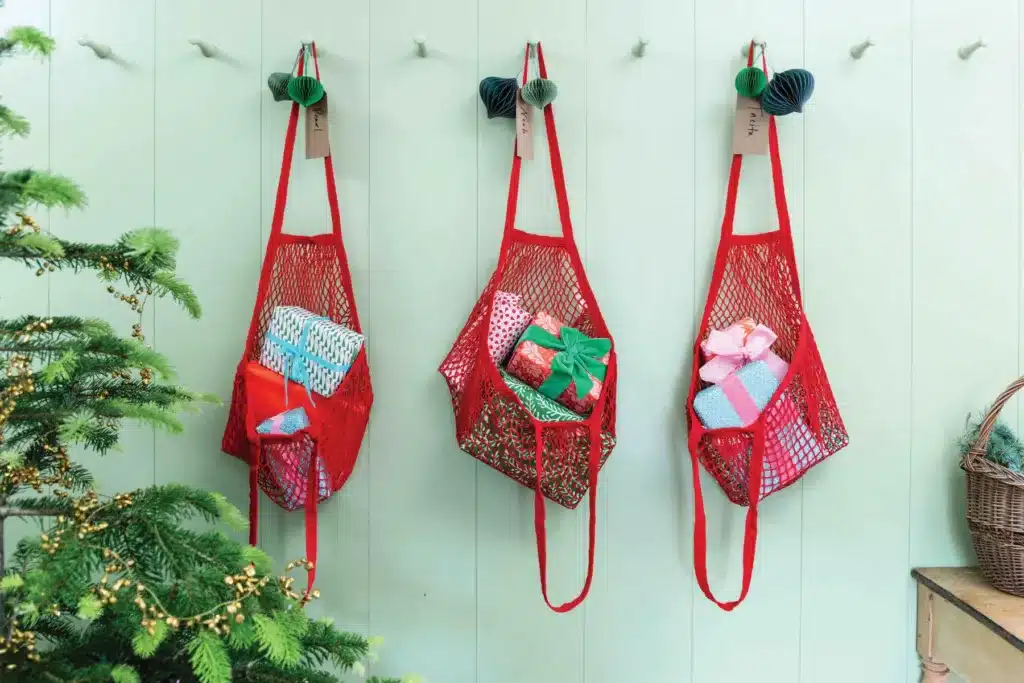
What were the highlights of your time at Betty?
We quickly became known for shows that had a contemporary edge – about young people, debt, eating disorders, we did many series for BBC and C4 including working with many people with neurodiversity – the longest running series was the Undateables, which was based on a documentary we did about a specialist dating agency for people with learning differences.
The Undateables was Bafta nominated, we won an Emmy for the drama we did on child abuse and RTS awards, but being in the best indie awards and the recognition of the culture matter most to me. That is more of a legacy to the industry.
If you employ a super diverse team, those people bring a richer mix of ideas to the screen and then people can see themselves in those shows. I am proud of that, and I hope others take some of that culture into the companies they now work for and run.
How did the role at Comic Relief come about?
It was just a month after I had left Betty, which I had run for nearly 15 years, when I got the call from Comic Relief to apply to be CEO. The chairman was Tim Davie (a Maidenhead man), now Director General of the BBC.
Richard Curtis and Sir Lenny Henry were two of the founders. It was an immense privilege to lead the charity and to see so much of the work done by frontline organisations and projects funded by the public donations and partners.
Was the role a pressure one, or did you enjoy every minute?
Working there changed me. I went to see HIV and malaria work in Uganda and to many enterprises in Sierra Leone including one turning dumped plastic bottles into roof tiles and to NYC to see how they put dignity into food pantries. There, food banks have to be run like shops, not handouts.
I visited a project a month in the UK. It was the social enterprises that inspired me as they had the entrepreneurial spirit of business with a drive for the profits to go into good. What I like about it is it’s all about the leg up, not the handout.
Did your time at Comic Relief inspire Different Kind?
It was Sir Lenny Henry’s 60th birthday, when we went to buy presents for him, and I asked could they come from makers with a social ethos that the Idea for Different Kind was born. We found recycled glasses from Ngwenya and a stunning cake from Luminary Bakery – both makers now feature in the Different Kind store.
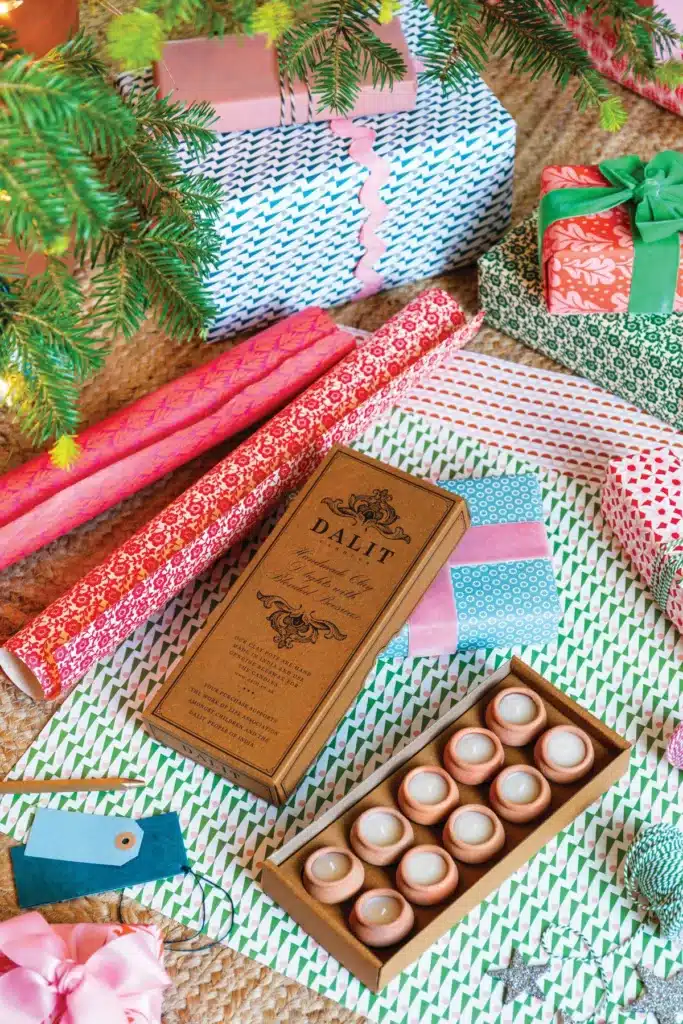
How quickly did you get the company off the ground?
It took six months of research during lockdown to find, evaluate and agree the range with the makers and producers and then another three months to build the website and find the fulfilment house in London. It is Mail Out, which is a warehouse which trains young people with autism and learning difficulties.
From day one, what was the ethos behind the company?
We launched exactly two years ago as a one-stop-shop for goods that do good – well-designed, well-made and all by people seeking to change the world with what they do.
It is an exciting model of how business can be a force for good. It is a store of amazing products, and we find new ones every week, so are constantly looking at adding to the collection, all available at thedifferentkind.com.
Have you evolved in any way since launching?
We have evolved fast with pop ups which weren’t part of our initial plans. We have done these in Oxford and Devon, as well as at companies such as Netflix.
We do corporate gifting too, with companies doing gifting to their staff and for clients. They want to use this opportunity to thank people, but do so sustainably and if the gift helps others that is a win win. That side of our business has grown at an incredible rate since launching. Both the products themselves and the stories behind them – the fact they have an ethical and social purpose – are gaining interest from a range of industries, from banks to TV production agencies.
We now do handpicked, curated gift hampers which are available to buy online. This Christmas we have nine festive hampers to choose from, starting at £50 for the ‘Bundle of Joy’ hamper. Alongside this, we can do bespoke gifting, like quintessentially ethical. For example, we recently had a Japanese client for whom we found whisky from a social enterprise on the Isle of Harris.
Or for bigger bespoke hampers, such as for a family staying at Great Ormond Street, who requested we did a hamper with useful hot drinks flasks, comforting foods etc – and all doing good for others too.
What kind of products do you offer for the home?
For homeware we have gorgeous baskets, ceramics, candlesticks and some great classics including glasses, table mats and luxe candles.
Our Blantyre upcycled glass storage jars are very popular. They are beautiful and will sit happily as display pieces, but also have a useful function. They are made by artisans in Malawi, from empty wine bottles collected from local restaurants. The lids are made from hand-carved mahogany.
The clothes horse drier has been a surprising consistent best seller. Made in York, the woodworkers at Camphill Village Trust specialise in thoughtful simplicity. They are a national charity supporting adults with learning disabilities and autism. They also support several of their service users “to discover the unique skills and talents everyone has” and then to start creating, making and learning.
The items produced are utilitarian, but have that pleasing ‘just right’ look. The homeware equivalent of the perfect white t-shirt. I think it is hard to find well made, stylish utility.
We also do gorgeous, foraged beauty, foodie gifts including ethical chocolate and small batch preserves, jams and honey all made in UK.
Do you have a favourite couple of home products?
It is really hard to choose a favourite, even just a few, as I genuinely love them all for various reasons and the stories behind them make them all worthy of favourite status.
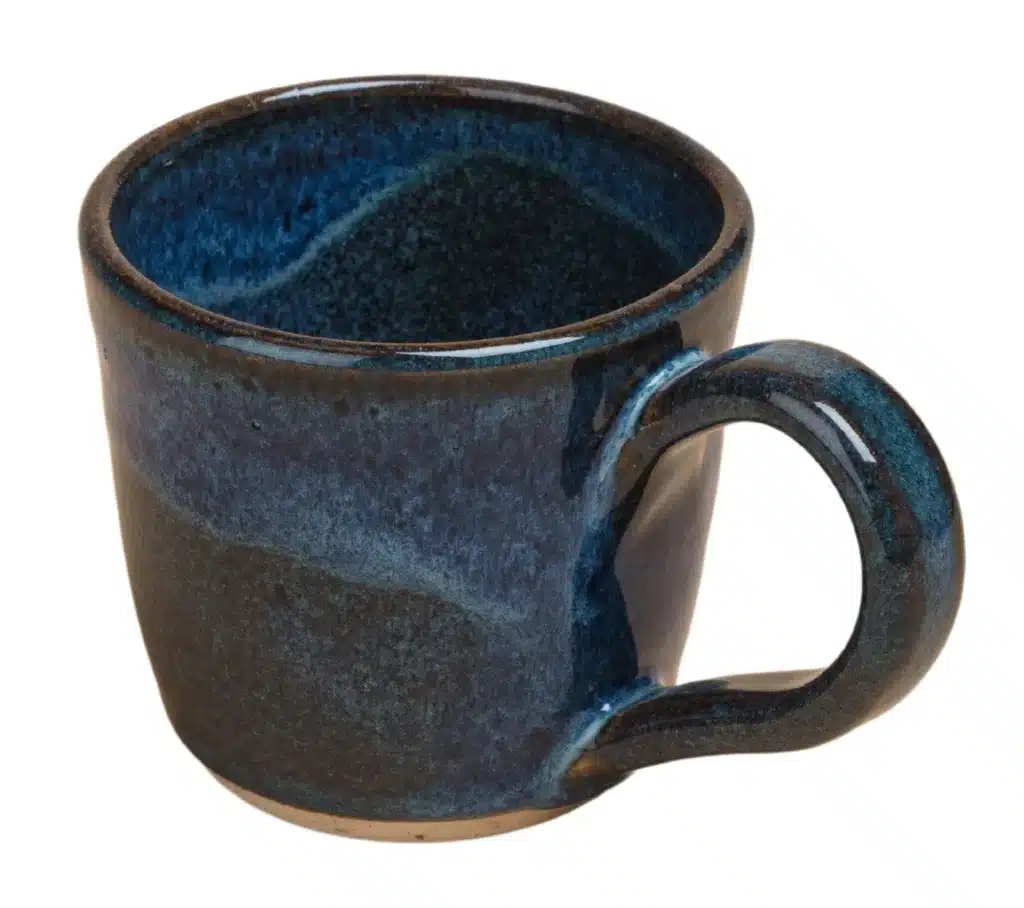
For the home, I really the espresso cups made by the One Armed Potter. They are borage blue and every one is handmade so slightly different – and very kind as One Armed Potter donates to LandWorks, the project that helped him rehabilitate and now he is a full time potter in Cornwall.
Gary Fulton, aka the One Armed Potter, is an example of rehabilitation in action. He began his pottery journey on a course run by the LandWorks project in Dartington, Devon, a work-based training scheme for current and former prisoners.
They are different because each piece is unique and I love the way the bowls, cups and mugs fit into our hands: they’re shaped to be held.
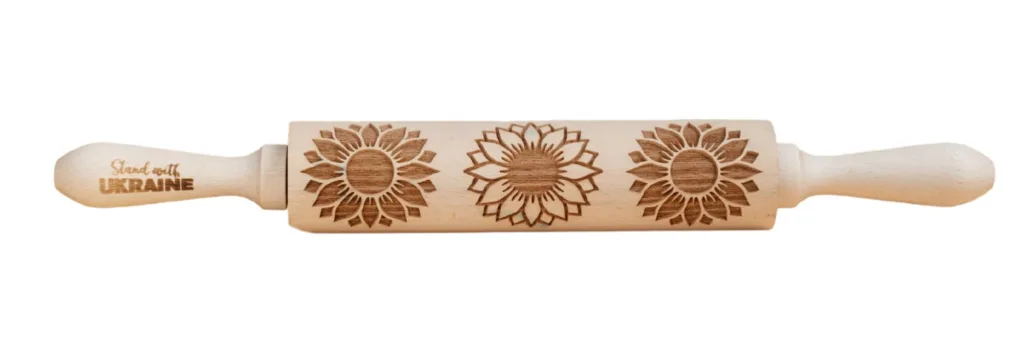
Our beechwood rolling pins from Polish company, PastryMade, make biscuits with sunflowers on. It’s a one-off, limited-edition beautiful gift that supports Ukraine. Every handle is embossed with the words “Stand with Ukraine” to bring that message of hope into your kitchen. For every set sold via Different Kind, £5 will be donated to the charity Cook for Ukraine.
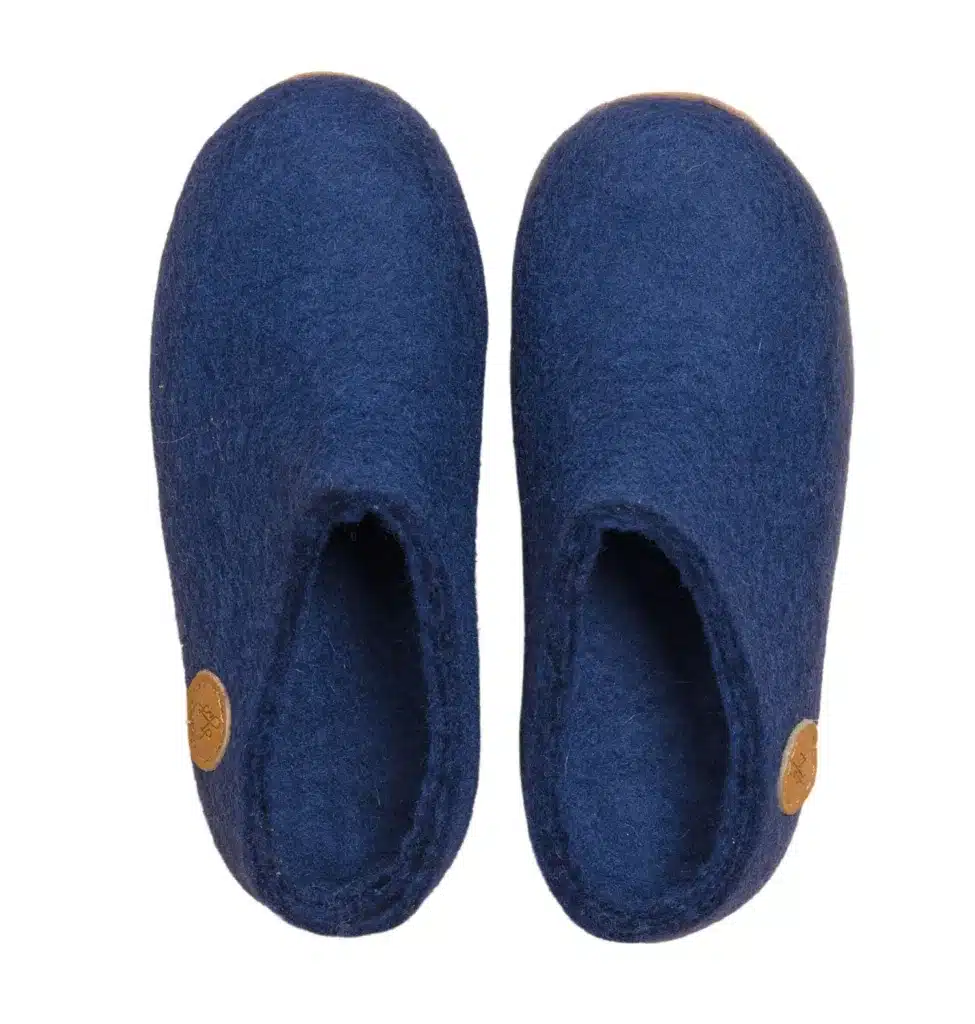
At this time of the year our Nauseni Wool Felt Slippers, from a women’s project in Nepal, are best-sellers. They are like a cool Birkenstock shoe and come in gorgeous colours. The whole project came about after the women sought a way to make a living after the earthquake. They are warm, have suede non-slip soles and cool to wear – you could go to the shops in Shoreditch in them and totally get away with it!
How do you see Different Kind progressing from here?
We feel as though we are just at the beginning of our journey and can’t wait to see what the future holds, how we can support our producers – and in turn their mission for social change.
For inspiring ideas, thoughtful gifts, and meaningful presents with purpose this Christmas, visit thedifferentkind.com

